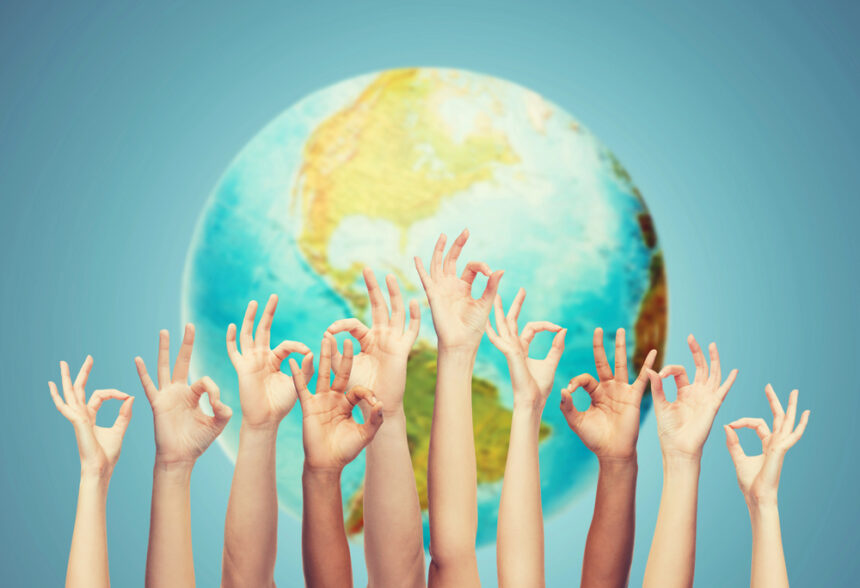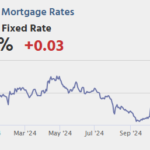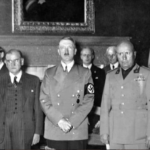Part 3: Closing the gap
This is the third part of a three-part series. Part 1 of this seriesSo we’ve discussed different types of inequality and which ones we should be concerned about. Part 2 of this seriesSo, we talked about measuring inequality. You can find part two here.
There is a widespread misconception that the extraordinary progress in various indicators coincides with growing global inequality. Human Progress Inequality Index The Global Inequality Index (IHPI), which I and Vincent Geloso created, shows that global inequality is clearly declining. This is true across a range of indicators, including income inequality, education inequality, and most importantly, overall inequality. In fact, in all but two of the dimensions of inequality that we analyzed, the world has become more equal since 1990.
Global equality in life expectancy, internet access, and education has improved continuously since 1990. Equality in political freedom has likewise improved almost continuously since 1990, although there has been a slight and worrying downward trend in recent years. This recent reversal does not negate the long-term trend of greater access to political freedom, but it is a reminder that progress is neither inevitable nor irreversible. Political freedoms can be lost if not protected. Globally, incomes became more unequal until the mid-2000s, but income equality has improved considerably since then. With regard to adequate nutrition, the trend line has been choppy, shifting towards greater inequality in the early to mid-2000s. However, the long-term trend has been towards significantly greater nutritional equality as access to adequate food supplies becomes more common around the world.
What about the two exceptions? The two indicators of the index are: more Inequality: mortality from outdoor air pollution and infant mortality. The mortality from air pollution may be due to increased economic growth. Economists have Environmental Kuznets Curve (Created by Simon Kuznets) predicts that pollution will increase with economic growth, and then decrease once a critical threshold is reached. The widening disparity in deaths from outdoor air pollution may indicate that some countries are in this transition. As these developing countries become wealthier, they will almost certainly experience improvements in environmental quality similar to those seen in developed countries today.
With regard to infant mortality rates, it is important to remember that in absolute terms, infant mortality rates have been falling worldwide. The widening gap in infant mortality rates is likely because high-income countries have outpaced the decline in infant mortality rates in low-income countries since 1990. Infant mortality rates have fallen again globally as more children survive beyond the first year of life, but progress since 1990 appears to have only occurred more rapidly in high-income countries with access to cutting-edge medical technologies.
While these exceptions are important, our most important finding is that overall inequality is declining. Indeed, compared to inequality trends in previous inequality indices that looked at fewer dimensions, the IHPI shows much larger improvements towards global equality. This result indicates that previous indices tended to underestimate the widespread extent of progress and the rate of improvement in living standards for the world’s poorest people. Global equality is growing at a faster pace than many realize.
in Adam SmithIn the time of John 1910, for every billionaire there were at least 500 poor people. Inequality was extreme. The explosion of wealth since then has made even ordinary people wealthy beyond imagination today.Number Dream of the century. The world has become a better place in the past few decades. and These gains are widely shared: greater public awareness of the decline in global inequality may strengthen support for the system of free enterprise and liberalized international trade that Smith advocated, which has reduced absolute poverty to record lows and made people around the world more equal.
Want more?
Nils Karlsson, Does inequality matter? review The poor and the rich At Econlib
Angus Deaton on health, wealth and poverty On EconTalk
Kellyanne Lawson on equal economic freedom The Great Antidote ( “Great Antidote Extra” by Kevin Lavery)
Chelsea Follett is editor-in-chief of HumanProgress.org, a Cato Institute project dedicated to educating the public about the global improvement in happiness by providing free empirical data on long-term development.







